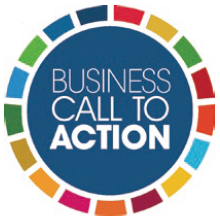[ Main Initiatives in Japan]
Sompo Japan Insurance Inc. is working to predict natural catastrophes such as floods and earthquakes using various data related to regional disaster prevention, including data of weather and buildings as well as AI technology. For local governments, Sompo Japan aims to contribute to the safe and secure lives of residents and improve local resilience by providing Disaster Prevention / Mitigation Insurance to compensate for various expenses related to an evacuation, thereby supporting swift initial responses by local governments.
As the need for adaptation to climate change increases, opportunities for risk consulting services as well as P&C insurance are expected to expand. Since 2018, Sompo Risk Management Inc. has been participating in the Social Implementation Program on Climate Change Adaptation Technology (SI-CAT) of the Ministry of Education, Culture, Sports, Science and Technology; utilizing a database that projects the climates that would result from global warming with temperature increases of 2°C and 4°C; as well as collaborating with research institutions. Through the aforementioned initiatives, Sompo Risk Management aims to upgrade its natural catastrophe risk models, accumulate know-how on the disclosure of climate-related information, and expand businesses.
[ Main Initiatives Overseas ]
In the overseas insurance business, Sompo International, our core intermediate holding company, launched AgriSompo as an integrated brand in the agricultural insurance field, which has long been its strength. AgriSompo is expanding its business to South America and Asia in addition to Europe and North America. In addition, following research and development conducted through a collaboration among Sompo Japan, Sompo Risk Management, and the Japan Bank for International Cooperation (JBIC), Weather-Indexing Insurance was launched in Southeast Asia in 2010. This product was recognized as meeting the requirement for membership of the Business Call to Action initiative in 2015. This initiative is led by the United Nations Development Programme (UNDP), with the aim of promoting the establishment of business models that combine commercial activities and sustainable development. By providing coverage for risks associated with windstorms, floods, droughts, and other natural catastrophes, Weather- Indexing Insurance and other products under the AgriSompo brand help reduce the business risks of farmers. We expect that demand for climate change adaptation, including demand for our products, will increase significantly centered on developing countries, which are vulnerable to climate change.

(2) Measures Based on a Low-Carbon Scenario
In the Sustainability (SSP1) scenario, a certain level of economic development underpins the effective implementation of climate change countermeasures and the achievement of harmony between the environment and the economy. Furthermore, a recycling-based society utilizing local resources, an energysaving society, and post-materialistic sharing services develop. In such a scenario, solar power, wind power, and other types of renewable energy would become mainstream. At the same time, a “mobility revolution” entailing the establishment of seamless public transportation systems in local communities would reduce the numbers of cars, which would mainly affect our domestic P&C insurance business.